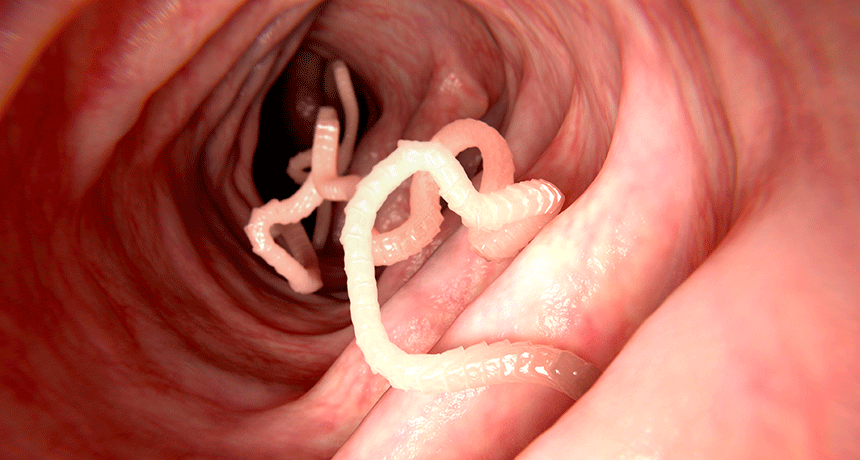ectoparasite A parasite such as a flea or louse, which lives outside of its host.
egg The unfertilized reproductive cell made by females.
endoparasite A parasite such as a tapeworm which lives inside of its host.
gull A family of long-winged and relatively thick-bodied shoreline birds. Most are gray and white with webbed feet. They tend to be very vocal.
hookworm A type of bloodsucking nematode (small worm) that lives within the intestines of people and other animals. With hooklike mouthparts, it attaches to the wall of the gut. This parasite punctures blood vessels there to reach the blood it seeks.
host (in biology and medicine) The organism (or environment) in which some other thing resides. Humans may be a temporary host for food-poisoning germs or other infective agents.
lice (in human health) A type of tiny wingless crawling insect that infests hair on the head and neck (although it can be found on eyebrows and eyelashes). This parasite spends its life on the body, feeding on blood through the scalp several times a day. A telltale sign of head lice is the presence of their nits, small white eggs that have been attached at the bottom of hair shafts. Singular form: louse.
organism Any living thing, from elephants and plants to bacteria and other types of single-celled life.
parasite An organism that gets benefits from another species, called a host, but doesn’t provide that host any benefits. Classic examples of parasites include ticks, fleas and tapeworms.
pup A term given to the young of many animals, from dogs and mice to seals.

